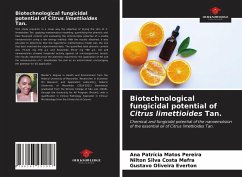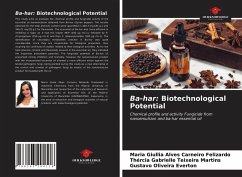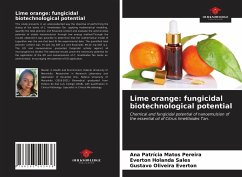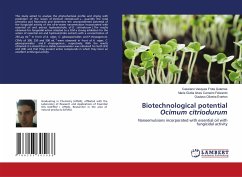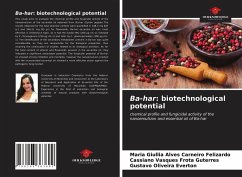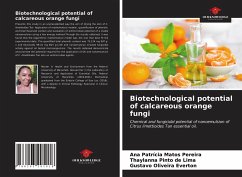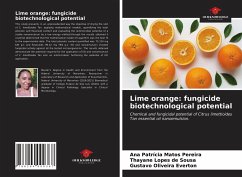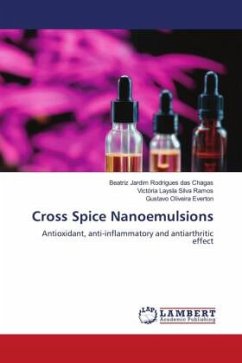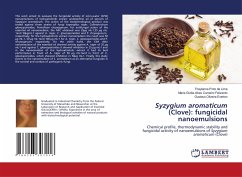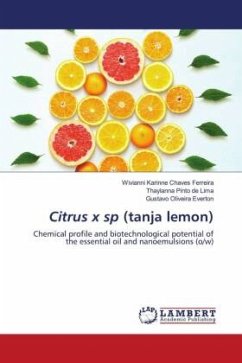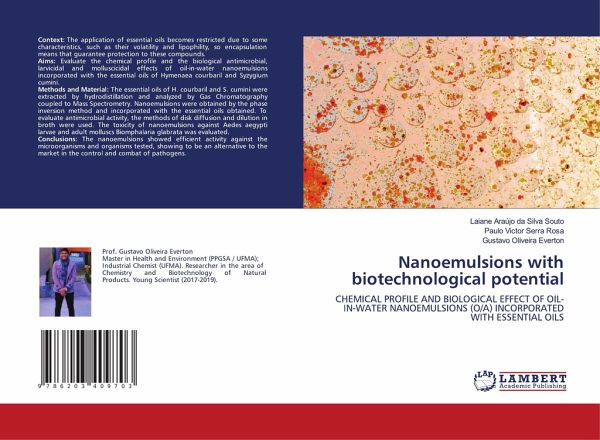
Nanoemulsions with biotechnological potential
CHEMICAL PROFILE AND BIOLOGICAL EFFECT OF OIL-IN-WATER NANOEMULSIONS (O/A) INCORPORATED WITH ESSENTIAL OILS
Versandkostenfrei!
Versandfertig in 1-2 Wochen
26,99 €
inkl. MwSt.

PAYBACK Punkte
13 °P sammeln!
Context: The application of essential oils becomes restricted due to some characteristics, such as their volatility and lipophility, so encapsulation means that guarantee protection to these compounds.Aims: Evaluate the chemical profile and the biological antimicrobial, larvicidal and molluscicidal effects of oil-in-water nanoemulsions incorporated with the essential oils of Hymenaea courbaril and Syzygium cumini.Methods and Material: The essential oils of H. courbaril and S. cumini were extracted by hydrodistillation and analyzed by Gas Chromatography coupled to Mass Spectrometry. Nanoemulsio...
Context: The application of essential oils becomes restricted due to some characteristics, such as their volatility and lipophility, so encapsulation means that guarantee protection to these compounds.Aims: Evaluate the chemical profile and the biological antimicrobial, larvicidal and molluscicidal effects of oil-in-water nanoemulsions incorporated with the essential oils of Hymenaea courbaril and Syzygium cumini.Methods and Material: The essential oils of H. courbaril and S. cumini were extracted by hydrodistillation and analyzed by Gas Chromatography coupled to Mass Spectrometry. Nanoemulsions were obtained by the phase inversion method and incorporated with the essential oils obtained. To evaluate antimicrobial activity, the methods of disk diffusion and dilution in broth were used. The toxicity of nanoemulsions against Aedes aegypti larvae and adult molluscs Biomphalaria glabrata was evaluated.Conclusions: The nanoemulsions showed efficient activity against the microorganisms and organisms tested, showing to be an alternative to the market in the control and combat of pathogens.



